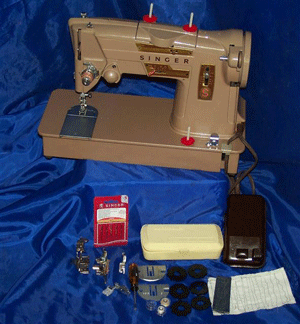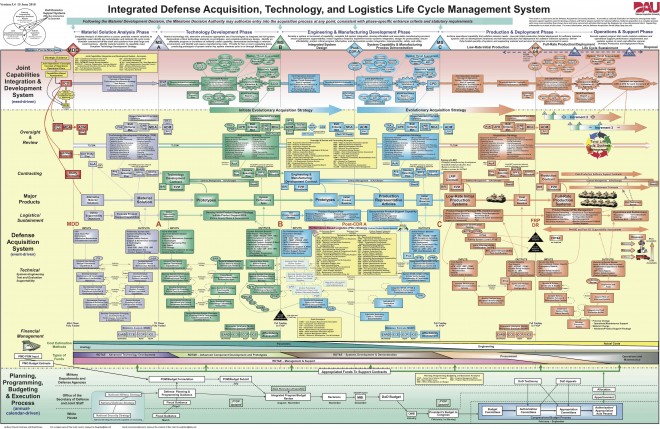I saw an interesting article this morning on the NDIA Blog site which said Secretary Frank Kendall, the Under Secretary of Defense for Acquisition, Technology and Logistics USD(AT&L), was unhappy that DoD did not meet the goal for having more competition for defense-related contracts.  I’m not surprised at that because given the irrational focus of DoD on vendor profits, they have managed to make bidding on defense contracts so unattractive that fewer and fewer companies are making the effort to bid. In my view, it’s not just one reason:
I’m not surprised at that because given the irrational focus of DoD on vendor profits, they have managed to make bidding on defense contracts so unattractive that fewer and fewer companies are making the effort to bid. In my view, it’s not just one reason:
- There are less contractors out there to bid
- DoD rules and regulations limit profitability on contracts (only the big guys can survive at the margins expeced by DoD)
- FAR requirements are so onerous (and increasing) that it’s too expensive to bid on many contracts
- FAR requirement are so onerous that it’s too risky to bid on many contracts
- The specter of having DCAA establish a parasitic site in your corporate HQ to monitor your finances is too distasteful
- Uncertainty of funding streams, including the ability of DoD to cancel any contract for any (or no) reason
- Too many ID/IQ contracts in order to avoid protests. They are just beauty contests.
I think I will stop at those seven for now, but there are more. What’s fascinating to me is that these reasons are ignored as DoD attempts to develop a fix for limited competition. The DoD solution is to increase regulation, increase reporting frequency (so the bad news comes more quickly I suppose), and continue to monkey around with contractor profits, even on fixed-price contracts. The best way, is to reduce the number of requirements, like those cited above, and let natural instincts and market forces drive competition.
In order to have more bidders, it must become more attractive to bid!
Hello? Did i just say that? Why isn’t the leadership focused on how to make bidding and working on government contracts more attractive? Can it be that simple? I think the answer is yes.
So what does the sewing machine have to do will all of this? This past weekend, the lovely Mrs. Crenshaw volunteered to do a little sewing to get one of our granddaughter’s uniforms ready for school. In order to do this, she needed her sewing machine liberated from the darkest recesses of the attic. I felt like I was in the basement of the Smithsonian as I rummaged throughout the boxes of brass plaques accumulated over the 32 years of my naval career (I’m not allowed to display them). I found a medal I received from the Russians, a box of challenge coins, some old text books from the Naval Academy (why I still have a book on differential equations is beyond me), and various other flotsam and jetsam accumulated over 40+ year of marriage. I finally found the sewing machine, Singer Syle-o-Matic Model 328 (now listed on E Bay as “vintage”). Setting it up after many years of disuse was challenging. It’s a mystery to me why sewing machines work anyway, much like the DoD acquisition process. I started fiddling around with the upper thread tension, adjusting the needle alignment, resetting the timing, changing the motor belt, tweaking the bobbin tension, etc. Before you know it, I had adjusted just about everything on that machine and I had no idea of what the original settings (which worked fine the last time we used it) were. I should have left it alone, done some basic maintenance (a drop of oil perhaps) and let it do its thing. But NOOOOOOOoo! I had to fiddle around with every possible adjustable part and got it so far out of whack that the only option was to go back to basics and take it to a professional. Now it works just fine. I think the same is true in the world of DoD acquisition We have monkeyed around with so many parts that we have lost sight of the original settings—-namely good, old-fashioned competition, unhindered by excessive regulation or government meddling in corporate finances. Why not turn over the management of corporate finances to the professionals (that would be corporate leadership) and let them do what they do best, COMPETE!

So my suggestion on how to increase comptetion is simple: make it more attractive to bid. One does this by eliminating the barriers to bidding, not by adding more.. Take a look at my seven reasons above. If we focused on fixing those, I guarantee you there would be more competition. In the end, the government would get better value for the dollars it spends, not just cheap, mediocre work for which the government is becoming increasingly famous (or infamous, I suppose).

